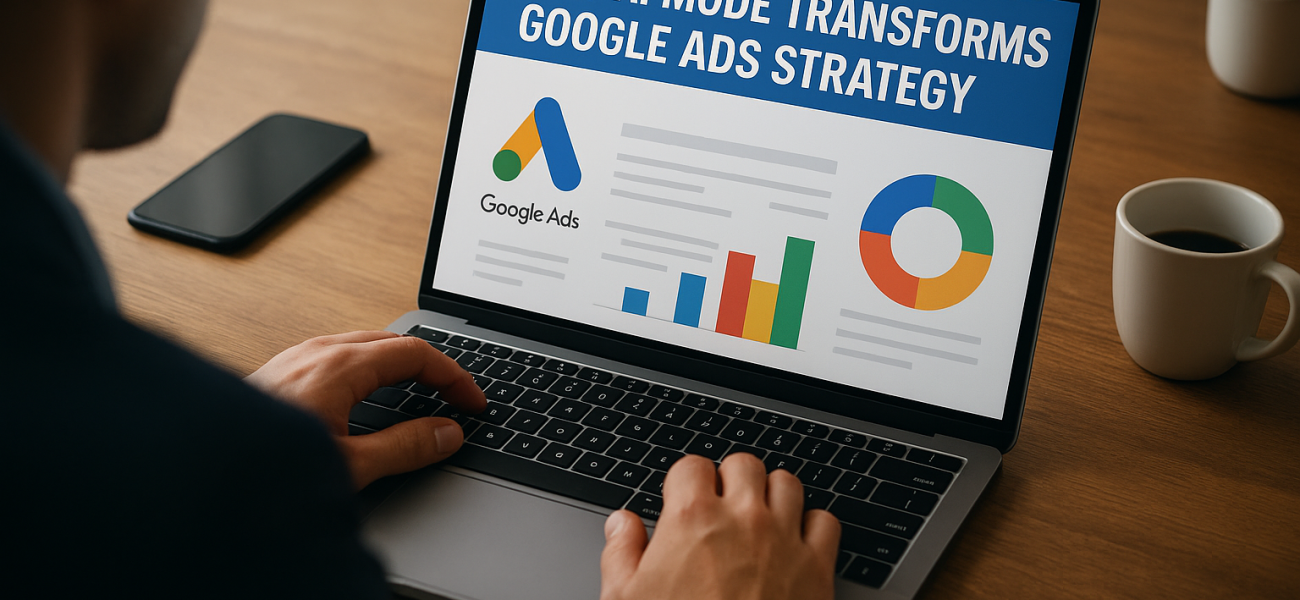In the world of digital marketing, keeping pace with search engine evolution is crucial. Google’s advancements continually reshape the landscape, influence ad strategies, and define campaign performance. As we delve into the changes initiated by AI Overviews and AI Mode, it becomes vital for marketers to understand their implications for advertising and user interactions. This article will explore the structural shift in Google Search and provide insights on how to navigate this new terrain effectively.
The Evolution of Search and AI’s Role
Search engines have always been dynamic, evolving from basic keyword matches to sophisticated AI-driven systems. Initially, advertisers enjoyed a good degree of control through manual cost-per-click (CPC) options and distinct keyword types. However, with the emergence of Shopping ads and automated bidding systems like Performance Max, Google has progressively altered how search works, focusing on efficiency and monetization.
Currently, Google’s AI capabilities—especially through features like AI Overviews and AI Mode—are fundamentally transforming the user experience. Rather than presenting users with conventional blue links, Google now leverages AI to generate direct answers and promote seamless navigation through conversations. This shift leads to ads being intricately woven into these interactions, enhancing user experience while simultaneously changing the game for advertisers.
Understanding the Shift in User Interaction
The introduction of AI Overviews has significant consequences for user engagement. Research shows a marked decrease in clicks on traditional search results whenever AI Overviews are present—dropping to just 8% from 15% without them—indicating a major shift in user behavior. Additionally, the rise of zero-click searches, which are approaching 70%, exemplifies how users increasingly favor immediate answers over visiting external websites.
The shift towards AI-driven interactions means that advertisers must evolve their strategies to remain relevant in an environment where direct engagement is minimal. — Lily Ray, SEO Director at Amsive
Impact on Ad Budgets and CPCs
This drastic modification in user behavior has immediate effects on competition and advertising costs. With fewer clicks translating into visible web traffic, the contention for remaining screen real estate intensifies. This competition inevitably leads to increased CPCs as advertisers vie for attention against the backdrop of reduced visibility. Campaign budgets must stretch further just to maintain last year’s visibility, a challenge compounded by the shifting dynamics of organic traffic.
These trends appear to differ across various sectors. For example, eCommerce and travel may see some benefits from AI-driven summaries, as users embark on comparative explorations. Conversely, sectors like finance and publishing may experience declines in brand and site exposure as users begin relying solely on AI-generated content.
The New Anatomy of Ads in AI Mode
Google’s AI Mode integrates ads seamlessly into the user journey, blurring the lines between traditional listings and new ad formats. Advertisers must adapt creatively and strategically, as AI-enhanced experiences will likely mean a reliance on outcome-based pricing models and engaging formats that promote natural conversations.
The future of advertising lies in creating experiences that seamlessly blend with user intentions instead of interrupting them. — Cindy Krum, CEO of MobileMoxie
Measuring Success in AI Environments
The transition to AI Mode also poses significant challenges in measuring ad performance effectively. Advertisers lack distinct reporting mechanisms to isolate their ads’ performance in this new AI landscape. As all performance data collapses into existing campaigns, the transparency previously expected in ad metrics is now murky at best. Brand leaders need clear insight into where their budgets are going and how they are performing—making pressure on Google for clearer reporting more critical than ever.
In the absence of direct metrics, marketers are urged to establish alternative measurement frameworks, connecting CRM systems to gauge marketing spend or tracking mid-funnel events that demonstrate user engagement effectively. This level of proactive measurement will facilitate a more accurate understanding of how AI impacts ad performance and ROI.
The Brand Safety Imperative
As AI Overviews evolve, advertisers face an unprecedented challenge regarding brand safety. Incidents of AI producing misleading or unsatisfactory content raise concerns about adjacent visibility, placing brand reputation at risk. The realities of AI-generated content necessitate a vigilant approach to monitoring where ads appear and ensuring they align with brand values.
Strategies for Adapting to AI Mode
To thrive in this AI-centric ad ecosystem, marketers need to prioritize several strategies. Emphasizing multi-step customer journeys instead of solely relying on keywords is vital. Crafting campaigns designed to facilitate user engagement through anticipating needs—such as “How to switch providers” for insurance—will enhance interactions with potential customers.
Moreover, embracing automation tools like Performance Max should be conducted with careful consideration of negative keywords and audience analytics to streamline ad placements and avoid wastage. High-quality assets are essential; focused use of structured data and schema markup can significantly enhance a brand’s visibility in AI formats.
Ad campaigns must evolve to consider AI’s capacity for personalization, constructing a narrative that flows with user inquiry. — Fred Vallaeys, Co-founder of Optmyzr
Preparing for Future Success
In adapting to this new era of marketing facilitated by AI, brands must establish robust frameworks for performance measurement and brand safety. By actively engaging with Google and asserting their expectations, advertisers will position themselves favorably in a transforming landscape where AI plays a crucial role in shaping search experiences.
Conclusion
The frontier of paid search is undeniably changing, steered by notable advancements in AI technologies. As ads evolve from mere placement alongside search results to integral components of conversational experiences, brands must prepare for the accompanying challenges and opportunities. By reframing digital marketing strategies to encompass journey management, refining measurement approaches, and prioritizing brand safety, advertisers can navigate these shifts successfully, ensuring their voices are not lost amid the noise of AI-driven discourse.
As this transformation unfolds, it holds the potential to redefine success for digital marketers. By staying vigilant and adaptable, marketers will not only survive these changes but thrive, gaining the competitive edge necessary in the new landscape of AI marketing.


